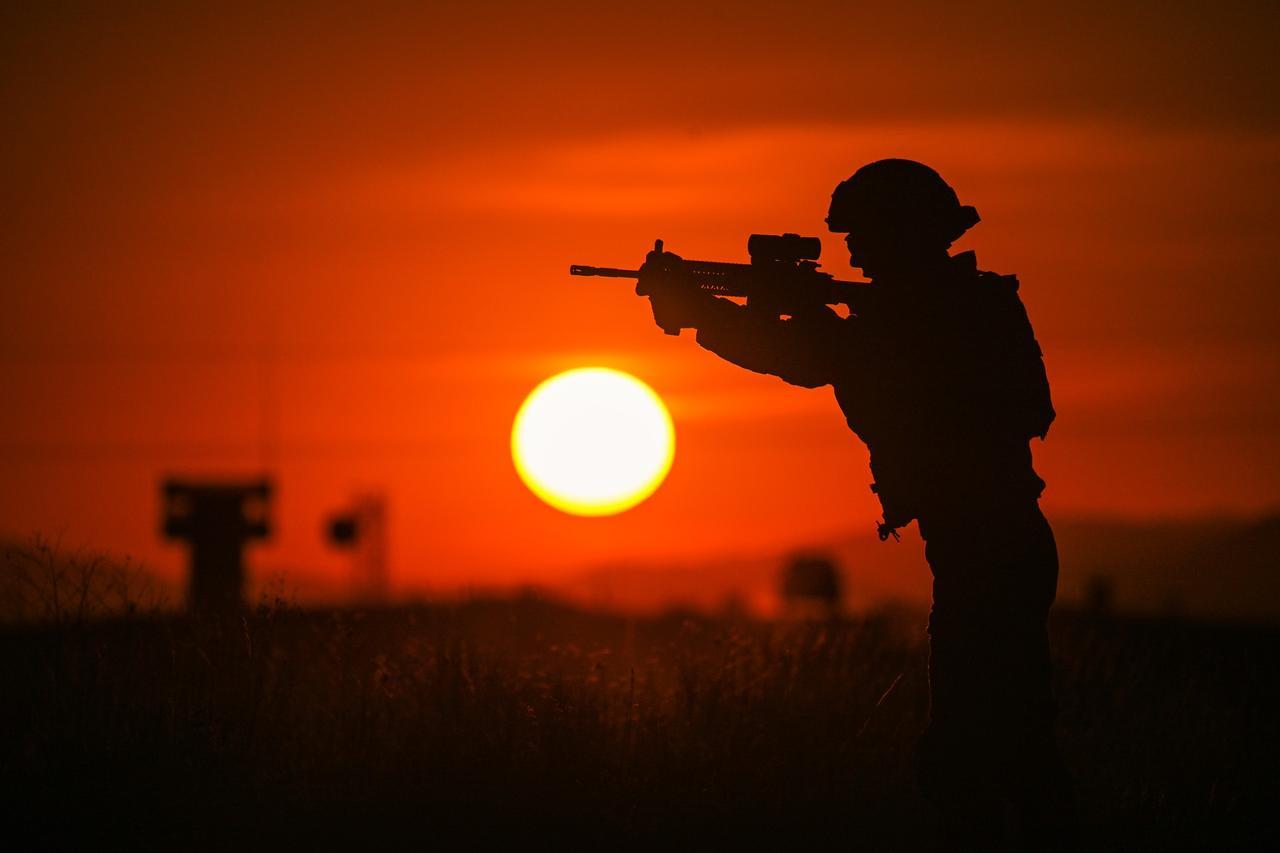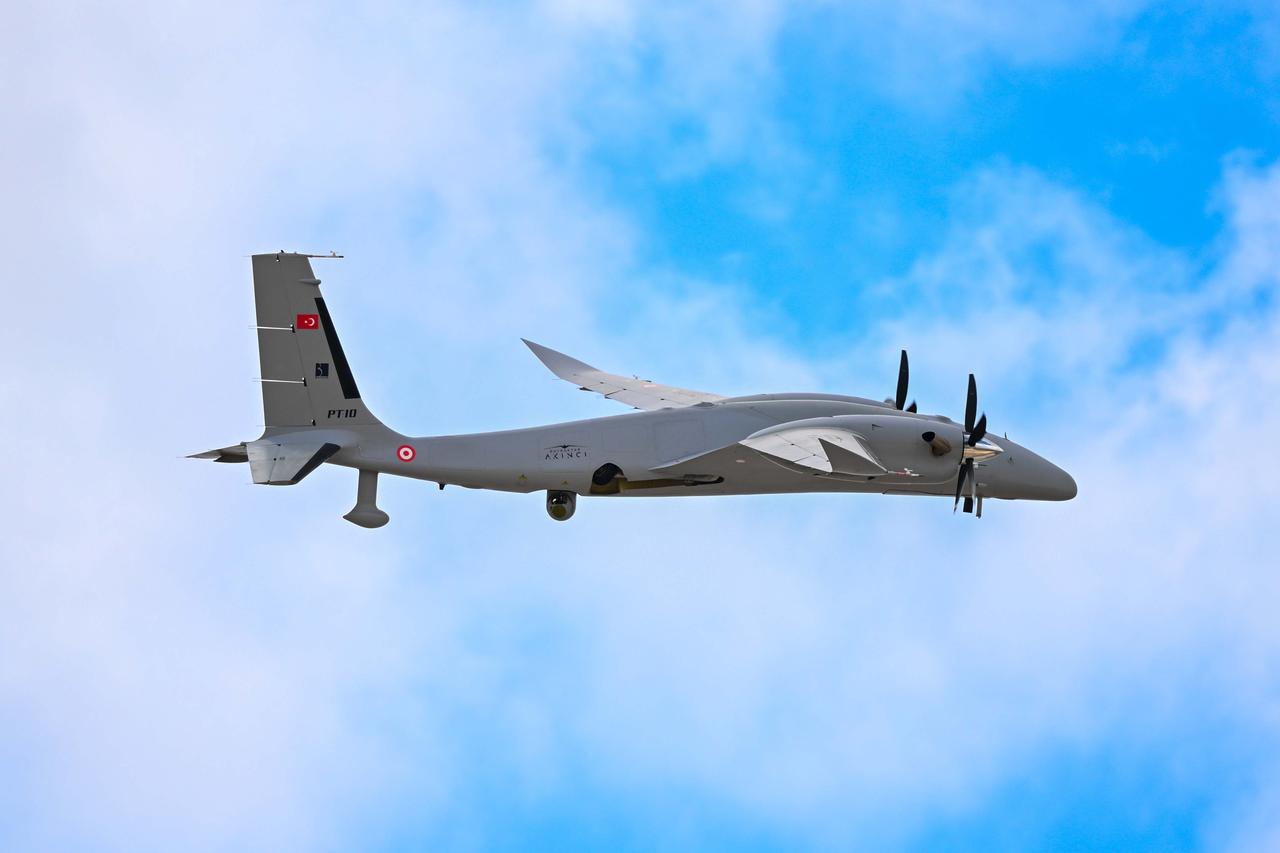
The process that led to the PKK terrorist group being trapped in its caves started with the launch of the Euphrates Shield operation on Aug. 24, 2016. Through a series of operations in Syria and Iraq, areas previously considered "impassable" were cleared of terrorism. While military operations were carried out on the ground, diplomacy also played an important role.
The year 2016 marked a turning point for the PKK terrorist group when it convened its congress and made the decision to dissolve itself. After purging the Fetullah Terrorist Organization (FETO) traitors from the Turkish Armed Forces (TAF), the operations launched in northern Syria and Iraq, the construction of new military outposts, and the use of national weapons played a significant role in the PKK’s decision to give up.
The process of leaving behind Türkiye's 47-year-long history of terrorism began when the TAF adopted a new approach in its operations, both on the ground and in the air, diverging from past strategies and tactics.
On Aug. 24, 2016, Türkiye launched the Euphrates Shield, Olive Branch, Peace Spring, and Spring Shield operations in Syria. These operations created “buffer zones” across the region. In March 2018, the TAF also initiated the Tigris Shield operation in northern Iraq.
Through cross-border operations against the PKK, the Hakurk region in northern Iraq was largely brought under control. In previous operations, ground and air forces would target predetermined objectives before retreating. However, this time the TAF did not withdraw. By 2019, the TAF had begun its series of Claw operations in Iraq and established military bases in key locations.
Changing its counterterrorism strategy, the TAF adopted a new method of securing borders from a distance and targeting terrorism at its source. One of Türkiye’s most significant successes in the fight against PKK terrorism was achieved when the TAF captured control of the Zap region in northern Iraq, considered the most important PKK base. With this victory, the final “lock” on the PKK's operations was closed, and the organization’s collapse began.

One of the key developments that contributed to the PKK’s inability to hide in caves was the effective use of drones (UCAVs), a strategy now recognized as the “Turkish Doctrine” in the lexicon of 21st-century warfare. The drones played a crucial role in intelligence gathering, allowing Türkiye to reduce its dependency on the United States, while cutting off the PKK’s leadership from their commanders.
Following the capture of Zap, a major operation began to clear out the caves and shelters used by the terrorists. To date, the Turkish military has neutralized 3,578 caves and shelters, effectively preventing terrorists from reoccupying these areas. As operations on the ground continued at full speed, diplomacy also played a role, and for the first time, the Ankara-Baghdad line began discussing “joint efforts” against terrorism. The Iraqi government officially recognized the PKK as an organization that uses Iraqi territory to target Türkiye and designated it as a banned organization. With the combination of military operations and diplomatic pressure, the PKK was cornered as the Assad regime in Syria began to collapse, and Iraq turned its back on the organization.
Border security became one of the most important elements of the fight against terrorism. Türkiye worked to secure its borders, especially the 1,471-kilometer-long border with Syria and Iran, which is the most at-risk area. Around 80% of the border (1,168 kilometers) was reinforced with security walls, while approximately 85% (1,254 kilometers) of the border received patrol road enhancements.
Furthermore, along the Habur and Hezil rivers on the Iraq border, 33 kilometers of embankments and a high-security panel fence were constructed, with 23.5 kilometers completed to improve border security and enhance Türkiye’s ability to monitor and control its frontiers.
The developments and strategies adopted by Türkiye in recent years have significantly reduced the PKK’s capacity to operate in the region. With a combination of military pressure, technological advancements, and diplomatic efforts, Türkiye is on the verge of closing a long and difficult chapter in its fight against terrorism. The ongoing struggle continues to evolve, with a strong focus on securing borders, eliminating terrorist bases, and working with regional allies to ensure peace and stability in the region.